







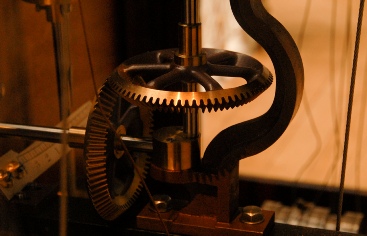

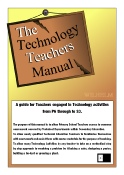















What is it that we need to learn to be successful when answering questions about
working with wood and man made boards? Well, in my opinion, the knowledge you would
have to gain would include the types of materials available and their properties,
how to add and subtract from these materials, how to prepare for and apply any required
finish to these, and also know the names of the hand tools, power tools and machines
typically used when working with them. For that reason much of the content provided
here will try to accommodate this learning.
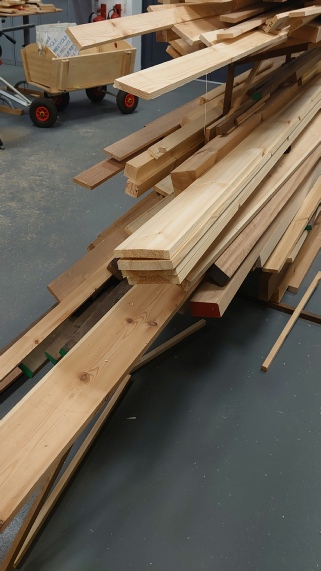
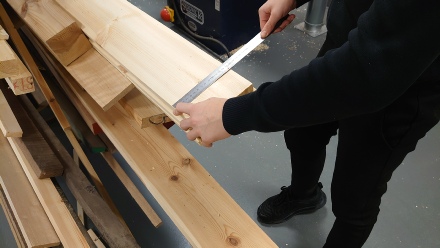
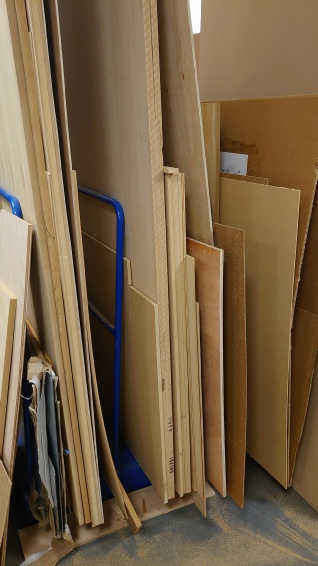
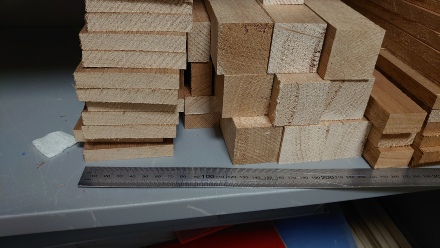
Natural timber boards are pictured here. They often come in set widths, thickness
and lengths. They come in the form of softwoods and hardwoods (See below). Some
are easier to work with than others and the price varies between them.
You should try become familiar with the standard sizes as this will help you decide
which are the most suited to any particular task.
In recent years man made boards have been used to replace natural woods in manufacturing,
this has been done for a variety of reasons. Some of the these are that they are
easily cut, come in widths much greater than natural boards, are usually flat, can
be much cheaper in many cases, and some types can be much stronger and therefore
be more suited to certain application especially if load-bearing.
Shown here are some cross sections of a hardwood called Mahogany. The square section
pieces are typically used for the legs of chairs and tables, and these can be easily
turned on the wood lathe if required.
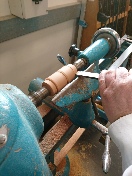
Wood lathe in use. A square section of wood being turned into handles for a drawer.

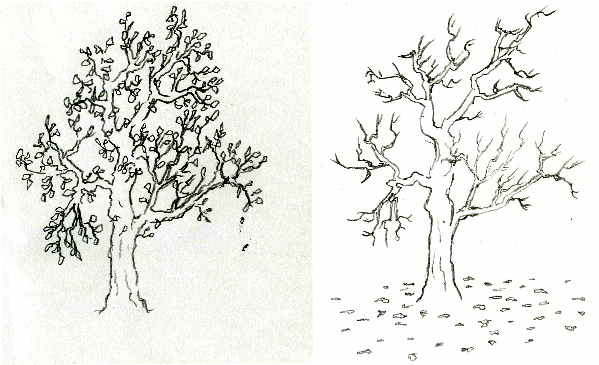
Hardwood Softwood Manmade Boards
Hardwood
Hardwood is wood that is from deciduous trees. Trees that have leaves on them during
the summer months, but who have their leaves fall off normally during the autumn.
They are Oak, Elm, Ash, Teak, Mahogany and many more.

Softwood
Softwood is wood that is from coniferous trees. Trees that have needles on them
all year round. You may know them better as evergreen trees or Christmas trees.
They are Cedar, Larch, Fir, White Pine, Red Pine, Parana Pine, Spruce and more.
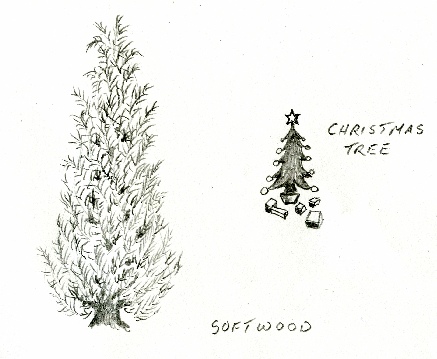
Hardwood trees have leaves and softwood trees have needles.
A common misunderstanding is that softwood is soft and hardwood is hard and often
during tests this is the answer that students give. It is the type of tree that
the wood is harvested from that denotes whether the wood is labelled hard or soft.
Manmade boards are usually a combination of wood particles, pulp or veneer sheets
bonded together with adhesives.




















